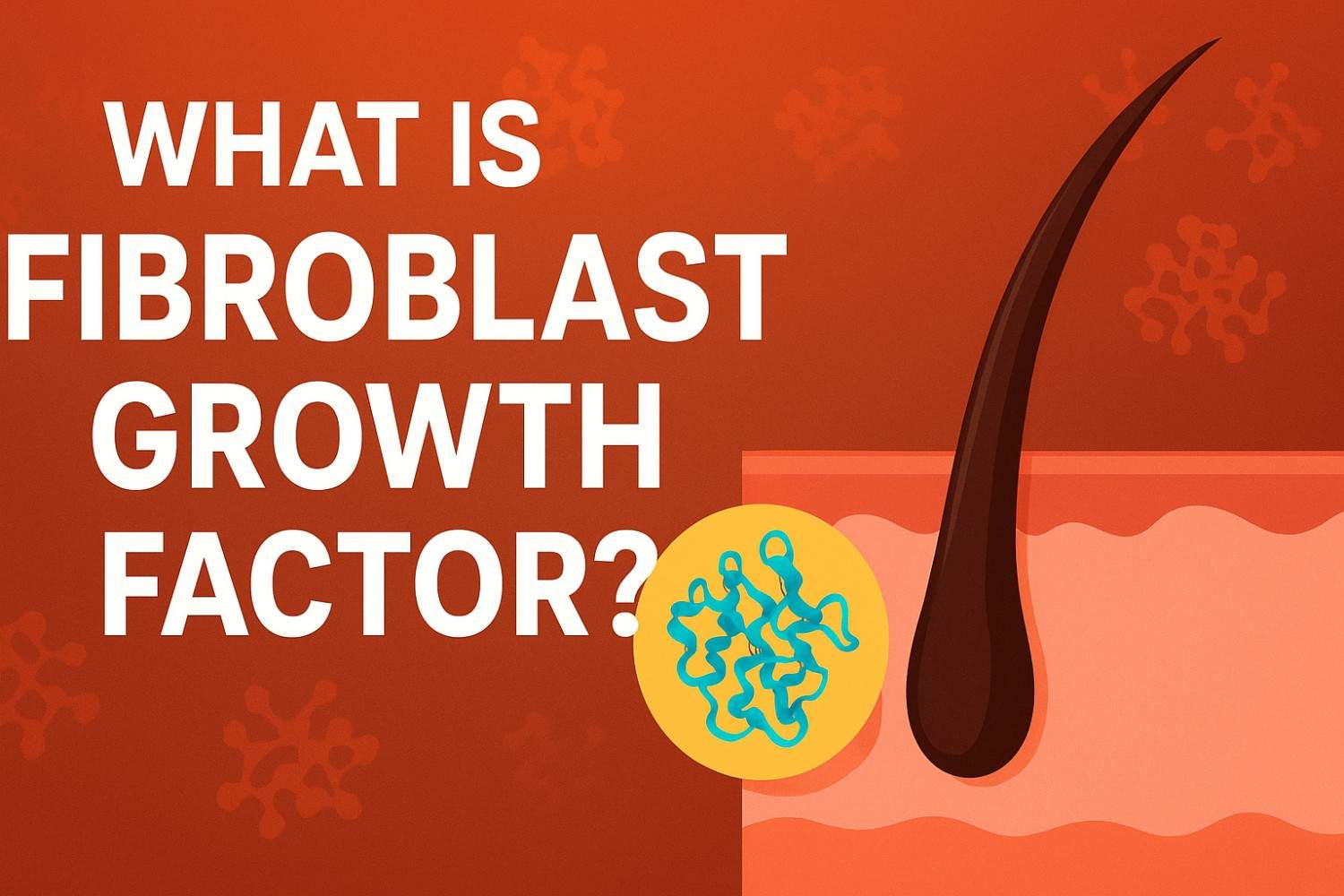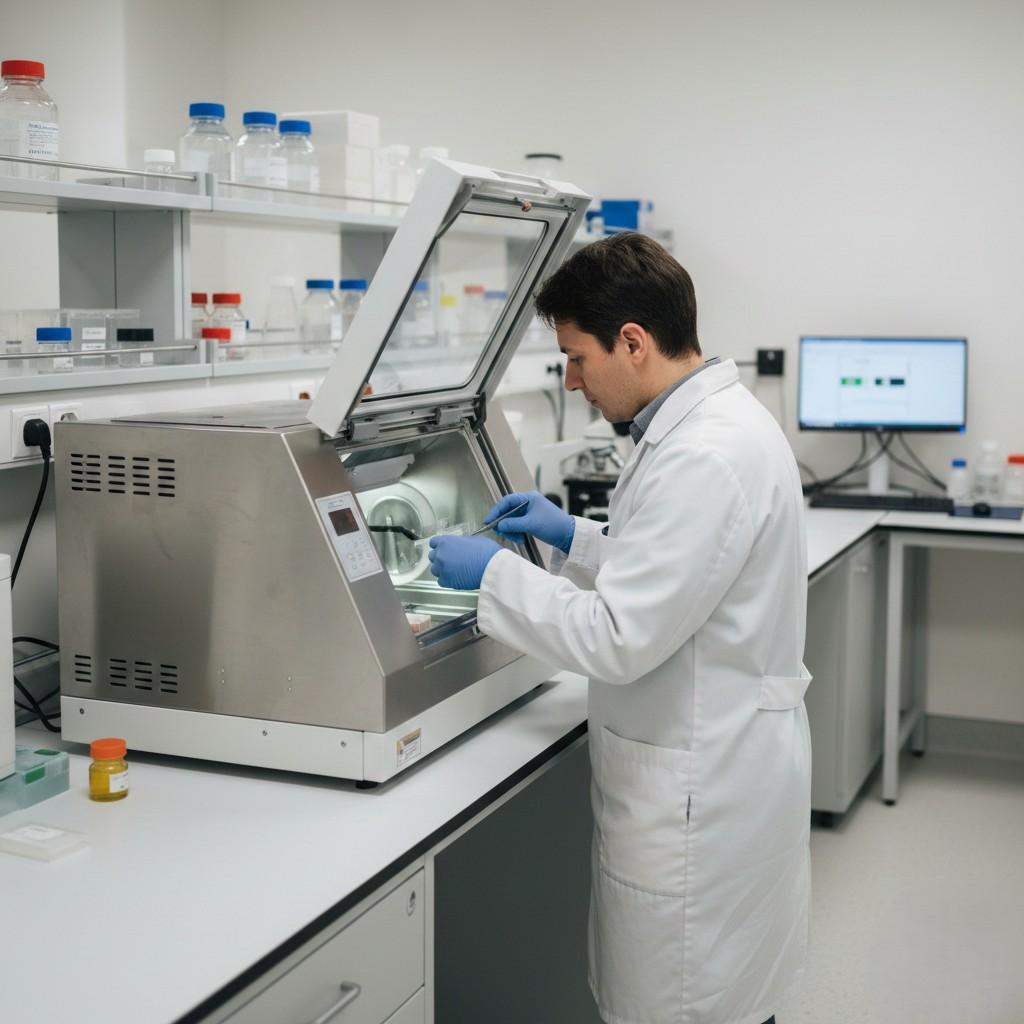
Today Fibroblast Growth Factor (FGF) has become quite famous in medicine, skincare and biotechnology. It is a family of proteins that control cell growth, tissue repair and development. Think of it as a kind of biological messenger that helps to heal and regenerate the body.
But the real question is – why is FGF so special? Does it really grow hair, reduce wrinkles or heal old wounds? And what does today’s research say about its future in regenerative medicine and metabolic health?
This complete guide explains you all about FGF – its function in the body, its use and its role in cosmetics and medicines.
Table of Contents
ToggleWhat is Fibroblast Growth Factor (FGF)?
Fibroblast Growth Factors are a group of polypeptides (proteins) that bind to FGF receptors (FGFRs) and then start a chain reaction inside the cell.
Important functions of FGF:
- Cell proliferation (creation of new cells)
- Angiogenesis (development of new blood vessels)
- Healing wounds and repairing tissue
- Supporting organ development during growth
- Regulating metabolism, phosphate balance and hormones
Understand that FGF is a signal that tells cells to “repair damage and maintain balance”.
Types of Fibroblast Growth Factors
There are 22 FGFs in the human body, and they are placed in different groups based on function.
Most studied FGFs:
- FGF1 & FGF2 (Basic FGFs): Strong role in blood vessels and wound healing.
- FGF7 (Keratinocyte Growth Factor): Regenerating skin and activating hair follicles.
- FGF10: Development of lungs and limbs; involved in research on wound healing and reducing scars.
- FGF21: Regulates glucose and fat metabolism; promising for treatment of diabetes and obesity.
- FGF23: Controls phosphate and vitamin D balance; linked to bone and kidney problems.
Benefits of Fibroblast Growth Factor
1. Wound Healing & Tissue Repair
- Helps in healing chronic wounds, diabetic ulcers and burns quickly.
- Creates new blood vessels for faster healing.
- Experimental use in the form of gels and sprays for trauma patients.
2. Anti-Aging & Skincare
- Boosts collagen and elastin production.
- Makes skin hydrated and elastic.
- Reduces wrinkles, fine lines and pigmentation.
3. Hair Growth & Restoration
- Activates hair follicles and prevents hair fall.
- Helps in growing thicker and healthier hair.
4. Regenerative Medicine
- Helps in repairing heart tissue after a heart attack.
- Research is underway on regenerating nerves after spinal cord injury.
- Promising in stem cell therapy and organ repair.
5. Metabolic & Hormonal Benefits
- Improves insulin sensitivity and fat metabolism (FGF21).
- Regulates minerals for bone and kidney health (FGF23).
Role of FGF in Skincare
FGF-based skincare has become a new trend in cosmetics today.
Benefits:
- Faster healing after procedures like laser, microneedling.
- Reduces scars and pigmentation.
- Improves skin texture and tone.
- Protects skin from UV damage.
Example: Anti-aging serums, post-laser creams, scar treatment gels.
Hair Growth and FGF
FGF (especially FGF7 and FGF10) are very important for hair follicles.
How it works:
- Activates stem cells of hair follicles.
- Improves blood circulation in the scalp.
- Lengthens the hair growth cycle.
- Helps develop new follicles.
Potential: May be more effective when combined with microneedling or PRP therapy.
Latest Research & Future Applications
FGF research is happening in many new medical fields:
- Cardiology: Heart tissue repair.
- Neurology: Supporting brain cells for Alzheimer’s and Parkinson’s.
- Orthopedics: Bone regeneration.
- Oncology: Targeting pathways of tumor growth.
In the future, its role is going to be tremendous in regenerative and personalized medicine.
Risks and Side Effects
FGF is natural but there are some risks associated with therapy:
- uncontrolled cell growth (cancer risk) if used excessively.
- allergic reaction to topical products.
- Long-term safety data is not yet clear.
⚠️ It is important to consult a doctor before using FGF-based medical products.
FAQs
Yes, FGF is naturally produced in the body.
Research is promising but still experimental.
Yes, it is safe in regulated formulations.
Yes, it stimulates collagen and elastin.
Protein-rich foods and antioxidants indirectly support FGF.
Conclusion
Fibroblast Growth Factor is an important protein family that helps the body heal, repair, and regenerate. From skincare and hair growth to advanced medical therapies, FGF is shaping the future of healthcare.
And yes, research is still ongoing but its potential is so great that FGFs are considered the most important part of science and wellness today.
📚 References
- Wang, H., Xiao, Y., Zhang, Y., Wang, J., & Chen, Y. (2022). FGF21: A Novel Regulator of Glucose and Lipid Metabolism. Frontiers in Endocrinology. https://pubmed.ncbi.nlm.nih.gov/35413740/
- Lee, C. J., Chen, Y. J., Huang, T. H., & Hsu, Y. H. (2019). Eclipta prostrata promotes hair regrowth and induces FGF-7 in C57BL/6 mice. Pharmaceutical Biology. https://www.tandfonline.com/doi/full/10.1080/13880209.2018.1561729




